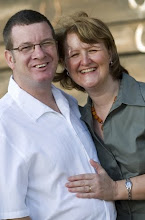.jpg)
We have just encountered the celebration of a special season for those of a certain faith here in Uganda. One might initially think that I am talking about America’s Thanksgiving season, which has just passed and is often viewed synonymously with what God has done for a nation.
I’m actually refering to Idd-al-Adhuha, which is the Muslim’s celebration of Ibrahim (Abraham) being asked by God to offer his son Ismail at an alter on a mountainside somewhere in today’s land of Israel, close to Jerusalem. Thankfully, Allah provided a ram as an alternative to Ismail. Muslims celebrate this by sharing meat; one third for their own family; one third for relatives; and one third for the poor. This commemorative feast also launches Muslims into their new year. It’s a four day festival. Idd means festival, and this one is different to Idd-al-Fitri, commemorating the end of Ramadan.
At first glance, this might be regarded to be so similar to the Jewish story of Abraham’s predicament with his son on Mt. Moriah, that one might be tempted to think that we have so much in common and we should agree with the ecumenical sentiments; that at least three faiths lead to the same God. That Judaism, Christianity and Islam all lead to the same divinity, though carrying differing names; Jehovah, God and Allah. We might think that there is a minor discrepancy in the stories; one son being named Isaac and the other, Ishmael. So, what is the problem with differing names in each story?
Amazingly, mount Moriah is almost certain to be in the same range of mountains around Jerusalem on which a certain Yeshua (Jesus) died as the slain lamb of God. On the same mountainside, where this time God did not offer any alternative, since there was none available. No other could provide righteousness for a people who put their faith in this better son of Abraham, son of David, son of Man. “But where is the lamb” asked Isaac, to which Abraham replied, “God himself will provide the lamb” and “on the mountain of the Lord, it shall be provided” (Genesis 22: 7, 14). When Jesus walked into the Jordan river to be baptized by John, he declared, “Look, the lamb of God, who takes away the sin of the world” (John 1:29).
What is the difference between the two sons of Abraham? Are they not one and the same person in two different faiths and holy writings; the Qur’an and the Bible? Well, in at least one of these books, their unique identities are unmistakable and host dramatically different destinies. There is no doubt that Jehovah affirms both Ishmael and Isaac as fathers of nations. There is also no doubt about God’s compassion towards Ishmael’s mother and his designed future for her son (Genesis 21: 13, 17f). Nevertheless, it is Isaac who becomes the heir of divine promises (21:12). Furthermore, those who put their faith in Jesus are clearly distinguished, not as sons of the “slave woman” (Hagar), but rather as sons of the “free woman” (Sarah), of a new and better covenant, and of a life in the promised Spirit of God, not in the laws of religion (Galatians 4: 21-31) .
We can certainly enjoy this festive season of thanksgiving for the special son of Abraham, Isaac, and his greatest descendant, Jesus, the most potent sacrifice of all, whose meat we eat and who continues to pour out his Spirit of joy on all those who pursue this Truth (John 6:53).
.jpg)
No comments:
Post a Comment